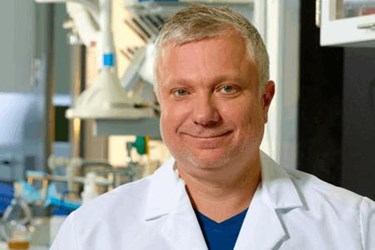Should Scientists Expect the Unexpected?

By Darrick Carter
Scientists are taught to look for unexpected findings. But all too often we lock onto hypotheses that we set out to prove, and therefore end up interpreting measurements by what we are looking for. It’s not always easy to spot valuable yet unexpected results.
There are many famous examples of big breaks that came about by accident: The Upjohn Company tried and failed to develop a class of compounds for ulcers. This didn’t work, but they did notice a drop in blood pressure in treated subjects. The company then asked Dr. Guinter Kahn to test one of these compounds, minoxidil, for anti-hypertensive effects. Once again, this didn’t work, but the Dr. Kahn noticed hair growing on treated subjects. The drug was reformulated for use on top of the head and became the well-known baldness treatment, Rogaine. Similarly, when Pfizer was testing a cardiovascular drug in patients, it failed in that use, but men in the clinical trials didn’t want to return their experimental drug at the end of the trial because they noticed better erectile function. It didn’t work for hypertension, but this drug went on to become Viagra.
Perhaps the most interesting area of unexpected outcomes lies in the way infectious diseases and bacteria can harm our health.
Pathogens like viruses, bacteria, and worms can cause pathological conditions in ways we never predicted. The medical community learned this lesson in the 1980s when two Australian scientists proved that ulcers are largely caused by bacteria and not stress. We know that hepatitis can lead to liver cancer, and that periodontal bacteria can lead to an inflammation that causes heart disease. Schistosoma worms can cause bladder cancer and by disturbing the urogenital tract enhance the transmission of HIV/AIDS. For the past decade, we have been vaccinating young girls against human papillomavirus because it can cause cervical cancer.
Scientists are also digging into studies that indicate infectious diseases could play a role in causing Alzheimer's, and that a certain adenovirus could be associated with obesity, in addition to genetics and lifestyle.
We also see the converse — that treatment and prevention of certain diseases can have unexpected benefits: Getting the flu vaccine drastically reduces deaths from serious conditions not directly caused by the flu - especially stroke and heart attacks. When emaciated children in the poorest countries are given a medication to eliminate intestinal worms, their immune system strengthens and they are better able to process food and fight off other infections. A relatively cheap drug solves problems that it’s not directly targeting.
There are some real black boxes here that need to be further explored. Preventing heart disease with a flu shot? A vaccine for adenovirus to prevent obesity? This way of thinking could lead to innovative ways to cure people. Once we would have laughed at these potential countermeasures, back when doctors prescribed milk and vacations to beat ulcers.
Now we must all challenge ourselves to be open to the unknown, to capture things we might not have noticed or believed.
As individuals, we need to understand that the impact can be greater than expected. Not afraid of the flu? Get your flu vaccine, it may save you from things you never thought of. Clean hands will not only save you from immediate food poisoning, but also from many other risks.
Funders of medical research could be more lenient when it comes to supporting trials and experiments that are “looking” for the unexpected.
Above all, this should be a reminder to all scientists to expect the unexpected during research projects. The reward can be great. Not only are you more likely to get your paper published in better journals when the results don’t fit the dogma. You may end up with a life-saving discovery you weren’t even looking for.
Bio:
Darrick Carter is VP of adjuvant technology at the Infectious Disease Research Institute.
